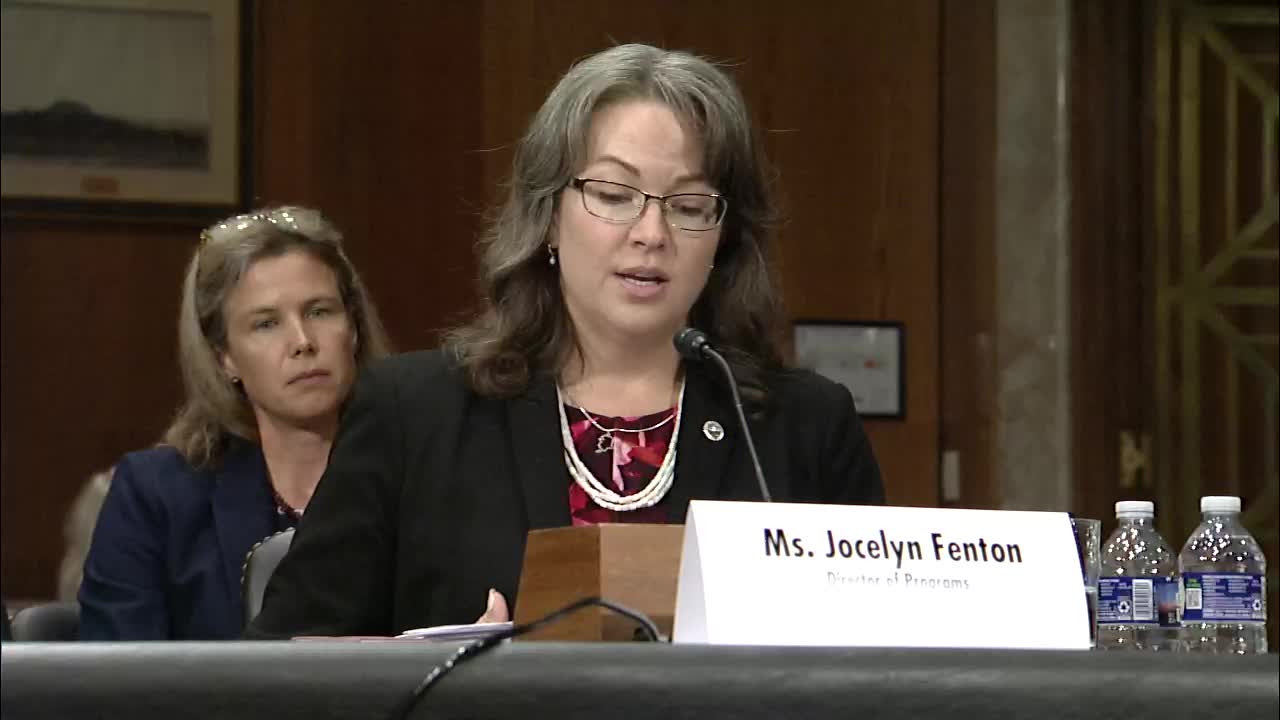Denali Commission Addresses Aging Infrastructure and Energy Security in Rural Alaska
September 10, 2025 | Indian Affairs: Senate Committee, Standing Committees - House & Senate, Congressional Hearings Compilation
This article was created by AI summarizing key points discussed. AI makes mistakes, so for full details and context, please refer to the video of the full meeting. Please report any errors so we can fix them. Report an error »

The U.S. Senate Committee on Indian Affairs convened on September 10, 2025, to discuss critical energy infrastructure needs in rural Alaska and to consider William Kirkland for the position of Assistant Secretary for Indian Affairs at the Department of the Interior. The meeting highlighted the urgent challenges faced by over 200 isolated villages in Alaska, where aging infrastructure and extreme environmental conditions threaten community survival.
The Denali Commission, established in 1998, has been a key federal partner in addressing these issues. Many of these villages, home to federally recognized tribes, rely on fragile systems for power, heating, and water treatment. The Alaska Energy Authority estimates that over $1 billion is needed to bring rural fuel storage facilities up to safety standards, with an additional $400 million required for upgrading powerhouses. The consequences of failing infrastructure are dire, as power outages can lead to food spoilage, frozen water systems, and health emergencies.
Rural Alaskan households spend approximately 27% of their income on energy, significantly higher than urban households. The high costs of electricity, sometimes exceeding $1 per kilowatt hour, further strain these communities. Investments in bulk fuel storage have proven effective in reducing costs, yet funding has not kept pace with the growing needs.
The Department of Energy (DOE) plays a vital role in supporting these communities through technical assistance and financial planning. The DOE Office of Indian Energy has helped numerous Alaska tribes develop hybrid energy systems and explore renewable resources. Local initiatives, such as the Arctic Energy Ambassadors Program, provide essential support by sharing knowledge and best practices directly with communities.
Despite these efforts, the unmet needs continue to grow. Many rural utilities and tribes struggle to access federal financing due to stringent credit requirements. The meeting underscored the need for Congress to create more flexible financing options tailored to the unique circumstances of these communities. Expanding technical assistance and funding for regional energy planners is also crucial for ensuring project success.
The discussions emphasized that energy security in Alaska is not only a local issue but also a matter of national security, given the region's geopolitical significance. Investments in resilient energy systems can enhance both community well-being and national defense operations.
In conclusion, the meeting highlighted the critical need for sustained partnerships and innovative financing solutions to address the energy challenges faced by rural Alaskan communities. As the Senate Committee continues to explore these issues, the implications for both local resilience and broader national interests remain significant.
The Denali Commission, established in 1998, has been a key federal partner in addressing these issues. Many of these villages, home to federally recognized tribes, rely on fragile systems for power, heating, and water treatment. The Alaska Energy Authority estimates that over $1 billion is needed to bring rural fuel storage facilities up to safety standards, with an additional $400 million required for upgrading powerhouses. The consequences of failing infrastructure are dire, as power outages can lead to food spoilage, frozen water systems, and health emergencies.
Rural Alaskan households spend approximately 27% of their income on energy, significantly higher than urban households. The high costs of electricity, sometimes exceeding $1 per kilowatt hour, further strain these communities. Investments in bulk fuel storage have proven effective in reducing costs, yet funding has not kept pace with the growing needs.
The Department of Energy (DOE) plays a vital role in supporting these communities through technical assistance and financial planning. The DOE Office of Indian Energy has helped numerous Alaska tribes develop hybrid energy systems and explore renewable resources. Local initiatives, such as the Arctic Energy Ambassadors Program, provide essential support by sharing knowledge and best practices directly with communities.
Despite these efforts, the unmet needs continue to grow. Many rural utilities and tribes struggle to access federal financing due to stringent credit requirements. The meeting underscored the need for Congress to create more flexible financing options tailored to the unique circumstances of these communities. Expanding technical assistance and funding for regional energy planners is also crucial for ensuring project success.
The discussions emphasized that energy security in Alaska is not only a local issue but also a matter of national security, given the region's geopolitical significance. Investments in resilient energy systems can enhance both community well-being and national defense operations.
In conclusion, the meeting highlighted the critical need for sustained partnerships and innovative financing solutions to address the energy challenges faced by rural Alaskan communities. As the Senate Committee continues to explore these issues, the implications for both local resilience and broader national interests remain significant.
View full meeting
This article is based on a recent meeting—watch the full video and explore the complete transcript for deeper insights into the discussion.
View full meeting